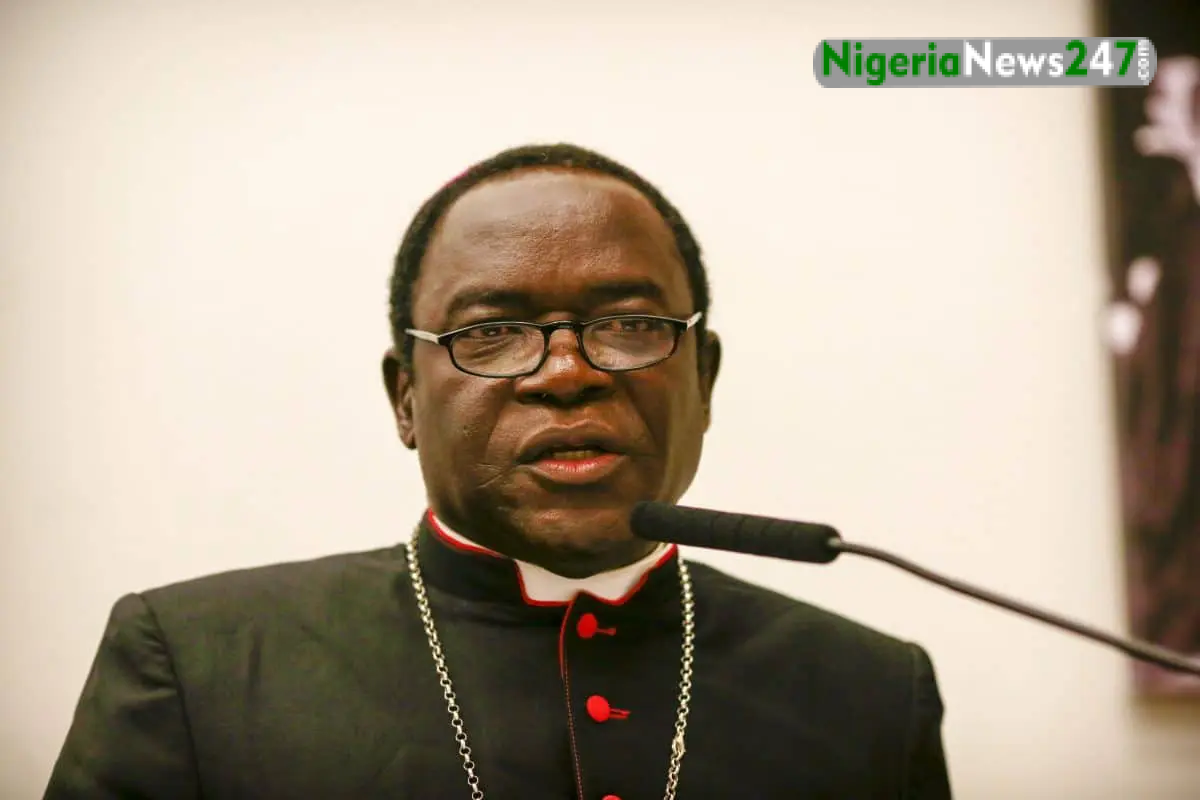BREAKING NEWS
Kukah Criticizes Nigerian Leaders: No Inspiring Presidential Speeches Since 1960

Catholic Bishop of Sokoto Diocese, Matthew Hassan Kukah, has said that no Nigerian president has delivered a speech as inspiring or impactful as the one given at the country’s independence in 1960.
Speaking during an interview on Arise Television’s Prime Time on Thursday, Bishop Kukah lamented Nigeria’s failure to craft a unifying national vision, saying the country lacks a collective dream that stirs the imagination of its people.
“Nation building is about mythology. It’s not necessarily about reality,” Kukah stated. “America, as we know it today, is a myth built on the American Dream. But Nigeria has not had the ability or the capacity to create a dream.”
He emphasized the importance of national narratives that inspire citizens, drawing comparisons with historic speeches such as John F. Kennedy’s 1963 address, which still resonates decades later.
“Close your eyes and ask yourself: after Nigeria’s 1960 Independence speech, has any president delivered a speech that made you pause and think, ‘Wow’? Is there any speech so memorable that you remember exactly where you were when it was delivered?” he asked.
Kukah blamed the country’s leadership, particularly military rulers, for stifling intellectual engagement in governance—a factor he believes hindered Nigeria’s development.
“What is the intellectual content of governance in Nigeria?” he asked. “When the military couldn’t win intellectual arguments, they dismantled the structures that supported them. They didn’t allow intellect to thrive or become central to national discourse.”
He concluded by criticizing the suppression of intellectual freedom under successive military regimes, noting that many were punished for exploring ideas outside prescribed boundaries.
“People were told they were teaching what they were not paid to teach,” he said, highlighting the culture of censorship that weakened the country’s ideological foundation.







![Top Nigeria Newspaper Headlines Today 25th June 2024 [Tuesday] 87 Nigeria Newspaper Headlines](https://nigerianews247.com/wp-content/uploads/2024/04/Nigeria-Newspaper-Headlines-80x80.png)

![[VIDEO] Tinubu Stumbles while Boarding Presidential Parade Vehicle at Eagles Square 90 Tinubu Stumbles while Boarding Presidential Parade Vehicle at Eagles Square](https://nigerianews247.com/wp-content/uploads/2024/06/Tinubu-Stumbles-while-Boarding-Presidential-Parade-Vehicle-at-Eagles-Square-80x80.jpeg)


You must be logged in to post a comment Login